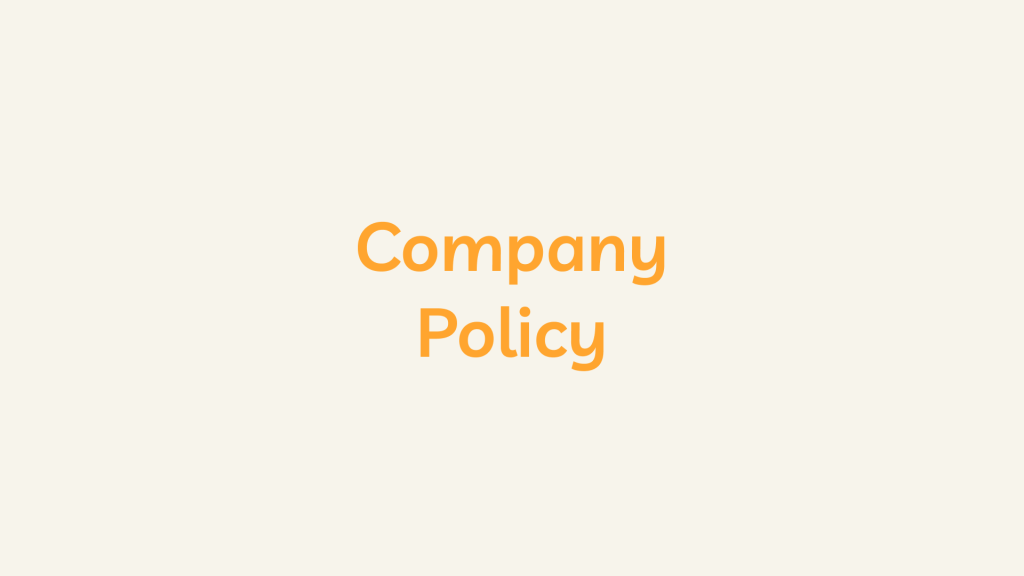What is Company Policy?
A company policy refers to a set of guidelines or rules established by an organization to govern the behavior of its employees and its relationship with customers, suppliers, and other stakeholders. Company policies are designed to ensure consistency, fairness, and compliance with legal and ethical standards. In this article, we will discuss the importance of company policies and some of the most common policies found in organizations.
The Importance of Company Policy
Company policies are essential for several reasons. First, they establish clear expectations for employee behavior and performance. This helps promote workplace consistency and ensures that all employees are held to the same standards. Policies also provide a framework for addressing issues or conflicts that may arise. By clearly outlining the steps that employees should take in different situations, policies help to promote a culture of transparency and fairness.
Another important function of company policies is to ensure compliance with legal and ethical standards. For example, policies related to harassment and discrimination help to prevent workplace violations and ensure that all employees are treated fairly and respectfully. Data privacy, security, and confidentiality policies help protect sensitive information and ensure that it is handled appropriately.
Common Company Policy
Several different types of company policies are commonly found in organizations. These include:
- Code of Conduct: This policy outlines the ethical and legal standards employees must adhere to. It includes guidelines related to conflicts of interest, bribery and corruption, and other forms of unethical behavior.
- Employee Handbook: This policy outlines the expectations and responsibilities of employees, as well as the benefits and resources available to them. It may also include company culture, values, and mission information.
- Harassment and Discrimination Policy: This policy outlines the company’s commitment to providing a workplace free from harassment and discrimination based on race, gender, religion, sexual orientation, or other protected characteristics.
- Social Media Policy: This policy outlines the company’s expectations regarding employee use of social media. It may include guidelines related to appropriate content, privacy settings, and social media use during work hours.
- Data Privacy and Security Policy: This policy outlines the company’s commitment to protecting sensitive data and information. It may include guidelines related to data storage, access controls, and data breaches.
Conclusion
Company policies are essential for consistency, fairness, and compliance with legal and ethical standards. By establishing clear expectations and guidelines for employee behavior, policies help to create a positive and productive workplace culture. It is important for organizations to regularly review and update their policies to ensure that they remain relevant and effective.
Company policy is a set of guidelines for following certain procedures. The rules define the principles of employees’ behavior and the organization’s activities in the chosen development strategy. Policies are also guidelines for legal issues, regulatory requirements, and any situation that could lead to serious consequences. A company policy helps foster employee wellness and fair treatment and ensures that a company follows laws and regulations.
